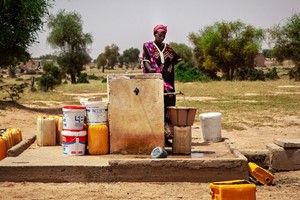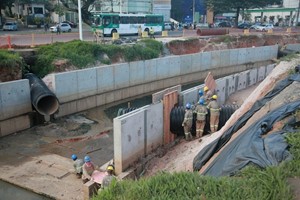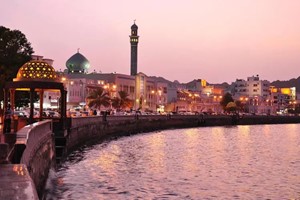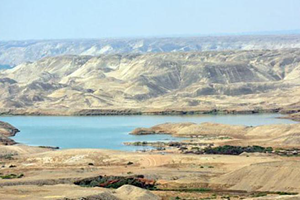The African Development Bank provides concessional funding for various projects and programs to reduce poverty and economic and social development in the least developed African countries.
The African continent faces three major and connected challenges, which are challenges that the new position presents. They include strengthening water and food security, supporting economic growth, and responding to climate change. In 2020, an estimated 387 million people (35% of the population) in sub–Saharan Africa did not have access to a basic water supply, 734 million people (67% of the population) did not have access to even basic sanitation services, and 810 million people did not have access to hygiene services, even though water and sanitation are fundamental to the realisation of all human rights. Water security is increasingly put in jeopardy by the effects of economic growth, urbanisation and demographic patterns. Climate change may potentially worsen the situation by increasing water stress as well as extreme events. Damages to infrastructure and assets caused by tropical cyclones or flooding are among the more obvious impacts but droughts, crop failure and instability brought by climate change may also result in rural-urban migration. The infrastructure needs are also immense, with a financing gap estimated at 3 to 4 times the current total level of commitments, estimated at $13.3 billion per year.
Across Africa, water is unevenly distributed. Over 50% of water resources concentrated in Central Africa, less than 3% in North Africa
Responding to challenges of improving water and sanitation access in cities on the other hand will be contingent on promoting integrated urban water management from a water security perspective. This would also include the mainstreaming of broader city resilience using instruments like the Africa Infrastructure Resilience Accelerator.
Across Africa, water is unevenly distributed, with more than 50% of water resources concentrated in Central Africa, and less than 3% in North Africa. This calls for fostering transboundary cooperation on information, infrastructure, and institutions which presents countries with an opportunity to promote basin-wide planning and development and build climate resilience effectively and efficiently, through strengthened institutions.
Another example is the Bulawayo City Water and Sewerage Services Improvement Project, a transformational $33 million project in Zimbabwe, which upgraded water production facilities, water distribution, sewer drainage networks and wastewater treatment facilities. Bulawayo has now reduced supply disruptions from six to two days per week, with a gradual plan towards a city-wide uninterrupted water supply. The increased pumping capacity has assisted the replenishment of the raw water reservoir, which had dried up in 2020 due to drought. The newly installed water pumps have increased the treatment capacity for the City of Bulawayo from 92 million m3/day to 145 million m3/ day – exceeding the city’s daily actual water demand of 135 million m3/day. The increased raw water capacity from the pumps, coupled with a refurbished water treatment system, means the city can now meet the daily water consumption demand of Bulawayo’s 770,000 residents in all its 165 suburbs.












